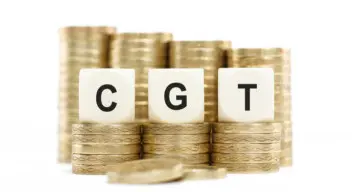KEY INFORMATION
UK property tax changes 2026: At a glance
- A mansion tax, officially called the High Value Council Tax Surcharge, will be introduced on homes worth over £2 million, Chancellor Rachel Reeves announced in the Budget on 26 November 2025.
- The new UK property tax will cost homeowners £2,500 to £7,500 per year, depending on property value. And it will be homeowners, not occupiers, who’ll need to pay it.
- The mansion tax will apply to homeowners with properties valued at more than £2 million in 2026, and be collected alongside council tax from April 2028.
- In a separate move, property income tax rates will rise from April 2027, increasing costs for landlords.
- Other rumoured UK property tax changes, including stamp duty reform, have been ruled out for now.
What is the mansion tax?
- A mansion tax, officially called the High Value Council Tax Surcharge, will be introduced on homes in England worth over £2 million, Chancellor Rachel Reeves announced in the Budget on 26 November 2025.
- The new UK property tax will cost homeowners £2,500 to £7,500 per year, depending on property value.
- The mansion tax will apply to homeowners with properties valued at more than £2 million in 2026, and be collected alongside council tax from April 2028. However, unlike with council tax, the money will go to the Treasury, not local authorities.
- According to the Office for Budget Responsibility, the mansion tax is expected to raise £0.4 billion in 2029-30.
- For more information on how the mansion tax will work, read our guide Mansion Tax: How the High Value Property Surcharge works and how valuations will be carried out.
UK property tax latest news – February 2026
Here’s the latest news on the mansion tax in February 2026.
Mansion tax could ‘target period features, studies and garages’
- An official document suggests the mansion tax could target homes with period features, studies and garages, The Telegraph has reported.
- The paper says this is because modelling by the Valuations Office Agency (VOA) to update council tax bands for 1.5 million homes in Wales could be used to implement the new surcharge.
- A document showing the methods used reportedly reveals what features officials believe push up property values. It states that box rooms, studies and the number of home upgrades should be taken into account, as well as the local authority in which the property is located.
- According to the specifications document: “We count all bedrooms, even if they are not currently being used as bedrooms. This includes box rooms and bedrooms being used as studies.”
Critics say desktop valuations under new UK property tax will be inaccurate
- Mansion tax valuations will not involve any large-scale physical assessment of properties, reports The Times.
- Instead, mansion tax valuations will rely on recent sales data, aerial maps and past planning applications to provide a valuation. Although it’s understood that in-person inspections could also take place for properties where there was less information available.
- Critics argue this will lead to inaccuracies because desktop valuations are difficult to get right with the types of homes targeted by the mansion tax, as they are often unique, with little or no directly comparable evidence.
- Plus, desktop valuations have a tendency to overvalue properties because of the “mathematical average it uses”, according to The Times.
- This has led to concerns the whole process will be bogged down with mass appeals from homeowners.
Use our free tool to find and get instant estimates from qualified Chartered Surveyors near you. Book a valuation survey today.
Find a Valuation Survey
Get instant quotes from Chartered Surveyors in your local area.
Get survey quotes
‘Council houses worth £2 million+ to escape mansion tax’
- News that council houses worth more than £2 million will avoid the mansion tax has sparked criticism.
- Social housing will be exempt from the mansion tax, the Government confirmed in documents published following the Budget, which said: “Social housing will not be in scope.”
- Exact figures on the value of social houses is not available, but across England there were more than 110 social homes, current or former, sold for more than £2m since 2021, which could therefore attract the mansion tax, a Telegraph analysis of property sales data and EPC ratings found. Some of these properties are likely to have been sold since, but the analysis highlights that a sizeable number of social housing would cross the £2 million threshold, the Telegraph reports.
- In most cases tenants are responsible for paying their council tax, including those living in social housing. The mansion tax will function as a council tax surcharge – with the revenue paid to central government – but it will be owners who are liable, rather than occupiers.
London flats hit by mansion tax, while castles outside capital escape
- Property prices are so high in London that while some one-bedroom flats will be stung by the mansion tax, a castle outside the capital will escape it, The Standard reports.
- It uses the example of the 18th-Century Tawstock Castle in North Devon, which has its own helipad, 8.41 acres of private, fenced grounds, castellated battlements and a King Arthur round table. Click here to view the castle on Rightmove.
- The property is in council tax band H but as it is for sale with a guide price of £1,350,000 it is unlikely to be impacted by the mansion tax.
Mansion tax divides opinion on UK property tax changes
- A fifth of the UK public (21%) don’t think the mansion tax is fair, a poll from mortgage lender Together shows. The highest proportion of those viewing the mansion tax as unfair were in Bristol (27%), London (23%) and Plymouth (23%).
- Ryan Etchells, chief commercial officer at Together, said the policy risked placing particular strain on older owners whose properties have risen sharply in value over several decades.
“This means ‘empty nesters’ and people who bought their property decades ago simply as a family home, not as an investment, will now have to cough up thousands just to continue living in their own home,” he said.
- However, while a minority oppose the mansion tax, the figures show that many more people in the UK support it.
Mansion tax
- The Scottish government has unveiled plans for its own version of the mansion tax, which will apply to homes worth more than £1 million.
- Before this can happen, there will be a “targeted revaluation” of the most expensive Scottish homes and two new council tax bands introduced for properties worth between £1m and £2m, and those worth over £2m.
- However, ministers have not yet specified how much extra the owners of high value homes will pay under the new system.
How many people will pay the mansion tax?
The government estimates over 100,000 households will be hit by the mansion tax.
Homeowners in London and the South East would bear most of the brunt of the new property tax. Around 50% of all properties in England valued at over £2 million are in London and 85% in the South East, Hamptons analysis shows.
Mansion tax: Our view
Paula Higgins, CEO of HomeOwners Alliance, said:
“It’s clear the government wants higher-value homes to contribute more. We’ll wait to hear further details about how the mansion tax will be set up in the planned public consultation in early 2026. We’re sceptical about whether the revaluation needed for this mansion tax can be delivered cleanly and on time.
“Another key concern for homeowners is whether this is the thin end of the wedge? Once measures are introduced, they have a habit of being extended or thresholds not being updated, and more people end up paying tax as a result. This mansion tax could quickly become relevant for more homeowners than the Chancellor anticipates.
“We expect these arbitrary thresholds of a mansion tax will distort the market, which OBR has recognised will cause bunching of sales just below the thresholds.”
What is classed as UK property tax?
The main UK property taxes are:
UK property tax changes 2027
Property income tax rates will rise by 2% from April 2027, the chancellor also announced in her 2025 Budget. Property income tax will rise by 2% across basic, higher and additional rates, taking these to 22%, 42% and 47%, respectively.
The Office for Budget Responsibility said this will raise around £500 million a year in extra tax.
However, Hamptons head of research Aneisha Beveridge said: “Those operating through limited companies will remain unaffected, but for individual landlords who make up the bulk of the market and who are already squeezed by higher borrowing costs and previous tax changes, this could accelerate the trend of investors exiting the market.
“Over time, that risks reducing rental supply and pushing rents higher.”
Together with the mansion tax, these measures signal a broader shift in UK property tax policy towards higher ongoing costs for high value property ownership and for property investors.
UK property tax Budget rumours: What didn’t happen
Homeowners up and down the country started to worry last autumn when Chancellor Rachel Reeves left open the idea of higher property taxes at the Labour Party Conference on 29 September.
But the following policies have not come to fruition:
- No changes to stamp duty: According to a paper by Tim Leunig at Think Tank Onward, which had informed Treasury thinking, this proposal would see stamp duty scrapped and replaced with a national proportional property tax, levied on house values above £500,000.
- No local property tax: Officials were also said to be studying whether after a national property tax is brought in to replace stamp duty, a new local property tax could replace council tax in the medium term, according to reports. Again this didn’t happen.
Frequently Asked Questions
Who will have to pay the new UK mansion tax?
The new mansion tax will be paid by homeowners whose properties in England are valued at more than £2 million. It will be the property owner, rather than the occupier or tenant, who is liable for the tax. The surcharge will be added to existing council tax bills from April 2028, with annual charges ranging from £2,500 to £7,500 depending on the value of the property.
Are more UK property tax rises likely after 2026?
Further UK property tax changes are possible beyond 2026. The government has already confirmed that property income tax rates will rise from April 2027, increasing costs for many landlords. While wider reforms such as replacing stamp duty or council tax have not gone ahead, experts warn that thresholds and charges introduced under new property taxes, including the mansion tax, may be reviewed or extended over time.






 February 3, 2026
February 3, 2026 

